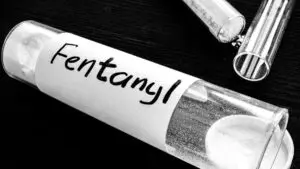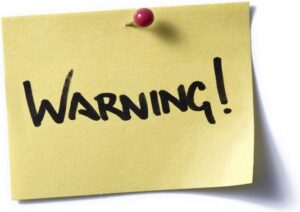Everyone has a drink just to take the edge off, right? Though sometimes you wonder if you’re having more drinks than most people you know. Maybe you also enjoy using drugs recreationally with friends to forget about the stress you’re experiencing. Or maybe you keep filling that painkiller prescription that was meant to help with pain from a past injury, even though it is well healed by now. Do you worry that you have a drug or substance abuse problem?
Drug addiction and alcoholism occur when the body and brain collectively adapt to a substance, to the point of users experiencing cravings for the substance. This can be a slippery slope and those with a substance abuse disorder can quickly lose control of their lives. Users can experience physical changes in their body and brain that makes them dependent on the substance they are using. As the user consumes more and more of the substance their tolerance increases. This causes them to have to use even more of the substance to get to their desired state of mind.
Understanding the signs and potential causes of substance abuse are the first steps to recovering and getting your life back under your control.
Warning Signs
If you worry about your alcohol consumption it is important to know what an average amount of alcohol consumption looks like. The Center for Disease Control (CDC) states that a moderate amount of alcohol for an adult male is 2 drinks per day. To put this into perspective, 12 ounces of beer, 8 ounces of malt liquor, 5 ounces of wine, and 1.5 ounces (commonly referred to as a shot) of 80-proof liquor are all equivalent to 1 drink.
In general, you can recognize if you have a problem with alcohol or drugs by considering how much you need in order to get drunk or high. If you need a large amount of the substance, you may be becoming dependent on it. Research studies have shown that men are overall more likely to abuse substances than women.
Consequences of substance abuse for males can result in erectile dysfunction, infertility, testicle shrinkage, a higher risk of heart attack, and loss of hair. This is on top of all the other health consequences of using substances such as the higher risk of stroke, neurological damage, risk of contracting a Sexually Transmitted Infection (STI), etc.
Those who struggle with mental illness are more likely to start abusing alcohol or drugs. The National Alliance on Mental Illness (NAMI) claims that about half of the population who already has a mental illness also abuses alcohol or drugs. It is important to pay attention to your substance use if you already struggle with mental health issues. Many want to self medicate but this will probably have adverse effects on your condition.
A significant warning sign is if your alcohol or drug use has affected other parts of your life. This matters even more so if your substance use has disrupted your life and you still continue to use it.
Getting Help
The next step in eliminating substance abuse is seeking help. According to the Substance Abuse and Mental Health Services Administration (SAMHSA), 62% of clients who seek substance abuse treatment are male. Taking action is the hardest part. There is a stigma around asking for help but it is more important that you get the help you need. To reach out and get help, you can contact:
- Your primary care physician.
- A local treatment facility. You can find a rehabilitation center near you by searching through SAMHSA’s Substance Abuse Treatment Facility Locator.
- A local 12-step program specifically designed for alcohol (Alcoholics Anonymous) or other substances. This option is beneficial alongside medical intervention. Meeting others who struggle in similar ways to you can help you feel less alone. Support is important, especially during recovery.
Physicians and support groups are nonjudgmental resources that understand what you are going through and exist to support and guide you back to sobriety. To learn more about substance abuse and overcoming addiction, please call Tangu Recovery today.



